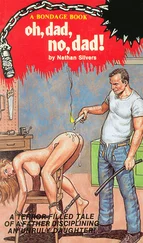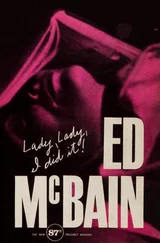He called his attorney. His attorney said there was no need for alarm but that it might be wise to call the State Department in Washington to see if they might be able to help him in locating Lissie. The man he spoke to there was named Mr. Brothers. Mr. Brothers told him there was virtually nothing the State Department could do. Unless they knew his daughter’s address, there was no way their various consuls in Asia could even begin making inquiries. He suggested that Jamie contact him again the moment he knew where his daughter could be reached. Jamie thanked him, and then hung up. He had called the State Department because he’d wanted help in locating his daughter; he had just been told to call back after he’d located his daughter.
He was a stranger to the part of the world in which his daughter was traveling. He telephoned the India Government Tourist Office and asked for a map to supplement the one in his 1967 Rand McNally Atlas, and then bought a half-dozen more maps in the Doubleday near Fifty-seventh. Some of them proved worthless while others were so detailed and sophisticated that they listed currency rates, time changes, temperatures and rainfalls at various times of the year, and even unlighted tollgates one might expect to encounter at night. The roadmaps gave him a sense of security. The countries through which she had passed, the country in which she was now traveling (presumably) seemed more civilized than he’d imagined them to be; there were primary roads and secondary roads and even little back roads, just as there were in Connecticut.
Like an armchair general planning a fall campaign, Jamie spread his roadmaps on the long table in the barn and tried to second-guess Lissie’s route.
Had she entered India at Lahore, which seemed likely, and then continued on to Delhi and eastward to Calcutta? Or had she gone up to Nepal instead? It was supposed to be beautiful there in Nepal, maybe they went right out of Delhi into Nepal, looks like maybe, what can this be, maybe nine hundred miles to Katmandu, that’s where they may have headed, supposed to be terrific there in Katmandu, temples and everything, monks, whatever, would have taken them maybe, well, how many miles a day would they be averaging, oh, figure thirty miles an hour, maybe a bit more, but say thirty and play it safe. So figure two hundred, two hundred and fifty miles a day, no more than that, they’d have been in Katmandu — well, let’s say they spent at least a few days in Delhi, let’s say they left Delhi on the twenty-first, they’d be in Katmandu by, where’s the calendar, well, I don’t need a calendar, just divide nine hundred by two-fifty, that’s close to four days, they’d have been in Katmandu by the twenty-fourth of August.
He made this calculation on Sunday, August 30, sixteen days after Lissie had written her last letter home. At a dinner party that night, he learned that both Reynolds McGruder here in Rutledge, and Matthew Bridges in nearby Talmadge, had a month ago received telegrams from the Defense Department stating that their respective sons had been killed in action. Apparently both young men (their lieutenants’ letters to each family read like carbon copies of each other) had been engaged in dropping supplies to a beleaguered South Vietnamese rifle company when the Vietcong opened fire and blasted the hovering helicopter out of the sky. It seemed as though Charlie hadn’t heard that the Americans might be pulling out. Or perhaps Charlie had simply decided that dropping ammunition and food could be considered aiding and abetting the enemy. Either way, Roger Bridges (who would have been twenty-one this month) and David McGruder (whose twentieth birthday would have come in December) would never again or respectively play drums and lead guitar in the group they had formed two years ago.
Dr. Frank Lipscombe warned Reynolds McGruder to keep a careful eye on his surviving son, lest he wrongly begin to feel that his brother had been killed in his stead, and then react hysterically to the unfortunate tragedy. This was not an uncommon wartime experience, Lipscombe explained to McGruder, witness the remarkable insights of the play Home of the Brave , where the hero suffered hysterical paralysis because of guilt feelings exacerbated on the battlefield. “The guilt in the case of your son Danny,” he said, “may be caused by an erroneous belief that only a stroke of luck sent him to college and David to Vietnam. In which case, he could easily...”
“Yes, I understand,” McGruder said. Tears were forming in his eyes. He turned away and went to sit quietly on the deck outside.
“How’s your daughter doing?” Lipscombe asked.
“Fine,” Jamie said. He never knew what to say when they asked.
“Where is she now? Home for the summer?”
“No,” Jamie said, and hesitated. “She’s in India.”
“India?”
“Yes.”
“Ah,” Lipscombe said.
Jamie waited. He knew what the next question would be. It had been asked of him a dozen times or more since that last letter from Lissie. It had been asked at Rutledge parties, and outside the Rutledge post office, and in the Rutledge hardware store, and once during a shoot in New York, and once in the steam room at the New York Athletic Club — the same question each and every time. Lipscombe asked the question now.
“Where in India?”
And Jamie, as always, hesitated. He didn’t know where in India. He had not heard from his daughter since the fourteenth of August.
“I don’t know where,” he said at last.
Lipscombe’s eyebrows went up onto his forehead. “Haven’t you heard from her?” he said.
“Not recently,” Jamie said.
“Well, I’m sure she’s all right,” Lipscombe said.
They all said that. You told them you didn’t know where your daughter was, and they all said, “Well, I’m sure she’s all right.”
Jamie was not at all sure she was all right.
He could not later remember exactly when he began to believe she was dead. It was certainly sometime in September. With a son, he thought, they draft him and the authorities know where he is at all times and if he gets killed in a rice paddy they send you a telegram like the one Reynolds got, or the one Matthew Bridges got, they send you a telegram. But with a daughter, there’s no one to keep track of where she’s been or where she’s going, no one but herself, and if she doesn’t choose to let you in on the secret, why then you are in the dark, man, you are sitting here in the autumn dark in the town of Rutledge, Connecticut, drinking strong whiskey neat on a cold September afternoon, the trees rattling, the wind wanting to know where the summer had gone? Where’d my golden girl of summer go, he wondered, where’s my darling Lissie?
He would sometimes wake up in the middle of the night, and lie staring at the ceiling, wondering whether Connie was awake beside him, wondering (if she was asleep instead) whether he should awaken her to discuss the only thing that seemed to be on his mind these days, the possibility that his daughter was dead. He would lie there, certain now that Connie was awake beside him and possibly thinking the exact same thoughts, but he would say nothing to her, would lie there silently instead in the stillness of the night, and then become suddenly angry, trembling with an overriding fury that made him want to get up and knock the radio-clock off the dresser, or pick up the chair with his clothes draped over it, hurl it through the window, push his fist through plaster and lath, kick things, smash things — how could she be so fucking inconsiderate, didn’t she know they were back here waiting helplessly for some word from her, hoping against hope that she wasn’t—
Читать дальше












